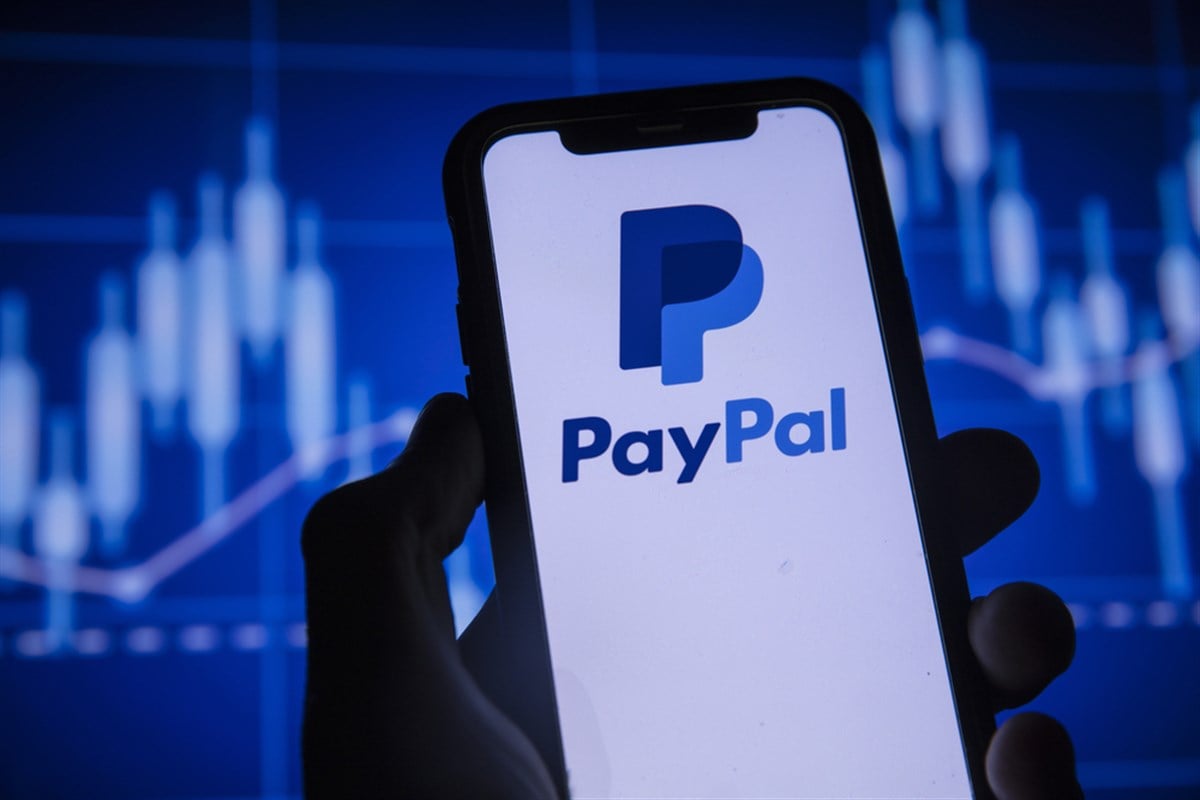
In the wake of the tumultuous COVID-19 pandemic, PayPal (NASDAQ: PYPL) emerged as a standout performer, riding the wave of digital transformation in payments. As 2020 unfolded, PayPal not only weathered the storm but thrived amidst the chaos, experiencing a surge in various key metrics. Total payment volume (TPV), revenue, and active accounts soared, propelling the company's stock price to remarkable heights.
Between March 2020 and February 2021, PYPL shares surged over 250%, reflecting investor confidence in its resilience and growth potential.
However, the economic landscape proved dynamic and challenging, as PayPal faced headwinds in 2022 and 2023. Inflationary pressures and rising interest rates dampened the once meteoric growth trajectory, leading to more modest gains and subdued performance. Despite these challenges, PYPL stock has held its ground, rising approximately 7.7% year to date, in line with the broader market.
Interestingly, PayPal's stock now hovers above its flattening 200-day simple moving average (SMA), signaling a potential shift in momentum and trend. Additionally, with an attractive forward price-to-earnings (P/E) ratio of 11.68, a recent earnings beat, and a projected earnings growth of 12.21% for the full year, the question arises: is now an opportune moment to consider PayPal for investment, given the potential for further upside continuation?
Let’s delve into recent developments shaping the narrative around PayPal, examining analyst ratings and scrutinizing its chart for potential breakout opportunities as investors ponder whether the current conditions present an advantageous entry point.
Analysts Remain Mixed Despite Recent Earnings Beat
PayPal, one of the world’s largest and oldest fintech companies, announced its latest earnings on February 7. The company surpassed expectations, reporting earnings per share of $1.48 for the quarter, exceeding the consensus estimate by $0.12. Additionally, PayPal recorded revenue of $8.03 billion, outperforming the consensus estimate of $7.88 billion. This marked an 8.7% increase in revenue compared to the same quarter the previous year. Over the last year, PayPal has generated $3.84 earnings per share (diluted). The company has long-term annual growth estimates of 19.8% for EPS growth over the next five years.
Despite the recent earnings beat and successful navigation through the company's recent challenges, analysts remain mixed on the stock. Based on thirty-five analyst ratings, the stock has a hold rating, which aligns with the consensus rating for the S&P 500 and other financial services companies.
Its consensus price target, which has steadily decreased over the previous months and years, is currently $70.63, forecasting just 6.78% in potential upside. Most recently, on March 21, The Royal Bank of Canada reiterated its rating on PYPL at Outperform, with a price target of $74.
Institutions Continue to Buy PayPal Stock
In the past twelve months, PayPal has seen significant institutional activity, with total inflows amounting to $24.27 billion compared to outflows of $10.52 billion. Institutional investors hold 68.42% of the stock, with the Vanguard Group as the largest holder, owning 8.4% of the company as of March 11th. Insider trading activity has been relatively subdued during this period, with only four transactions occurring, all of which were sales. Insider selling totaled $4.94 million, with no insider buying reported.
The Bottom Looks to be in for PayPal Stock
On a broader time scale, PayPal's stock exhibits an inverted head and shoulders pattern, with the November low of the previous year, around $50, serving as both the head and the bottom. The stock has regained and stabilized above all of its significant Simple Moving Averages (SMAs), suggesting a potential shift in trend and sentiment. If the stock surpasses the neckline of the inverted head and shoulders pattern, approximately in the range of $68 to $70, it likely confirms the momentum shift on the higher time frame.





